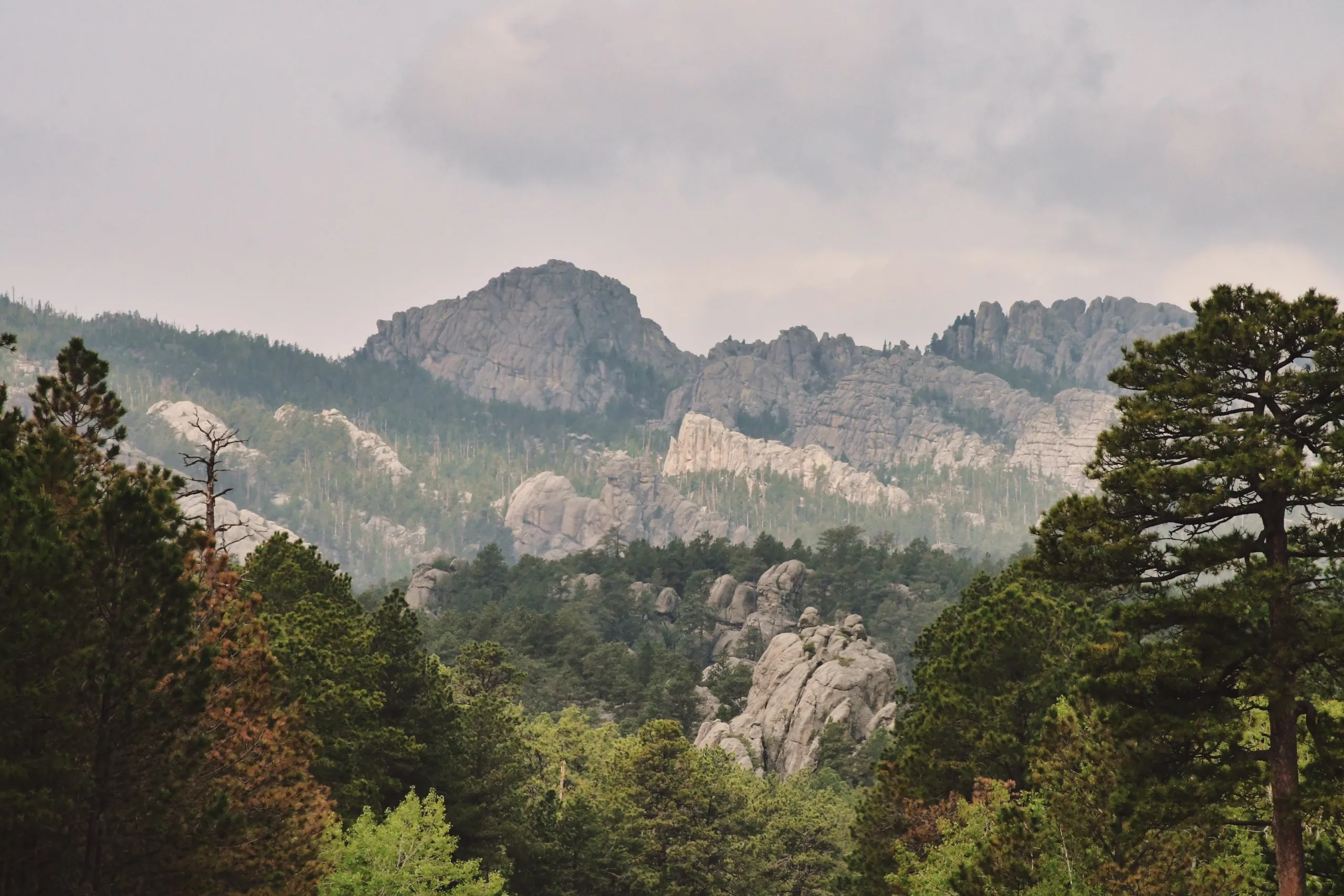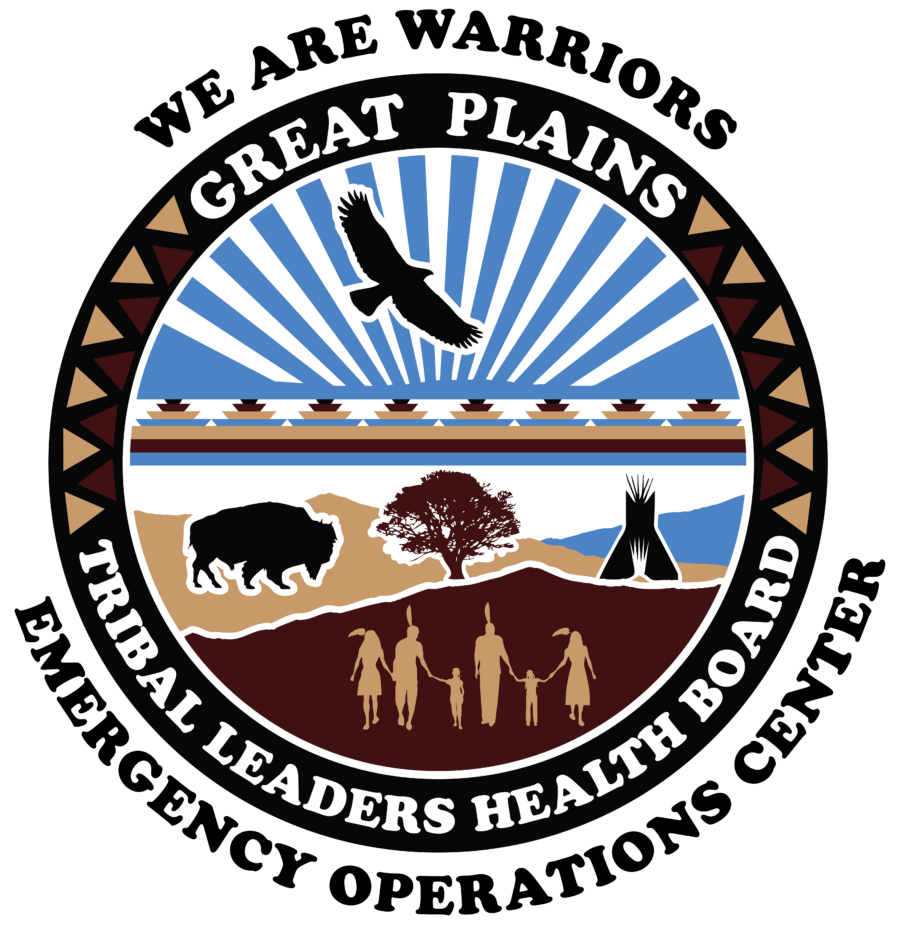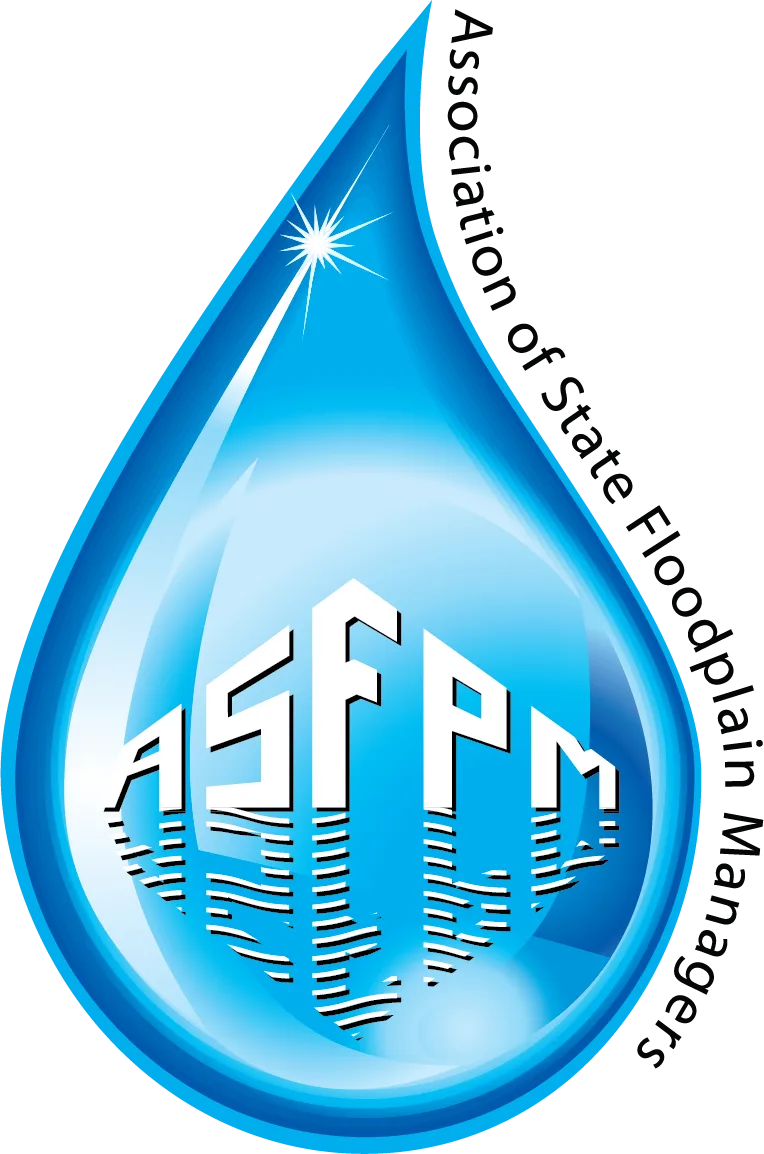

2025 Regional Tribal Emergency Management Summit
Hosted by




Join us in 2026
Highlights from 2025
The third annual Regional Tribal Emergency Management Summit took place from May 27-29, 2024, in Rapid City, South Dakota. The 100 participants included tribal emergency managers and personnel engaged in emergency response from Tribes in Minnesota, Montana, Nebraska, North Dakota, and South Dakota. Professionals with 15 tribal affiliations gathered to make collective progress on topics including disaster response, leadership, search and rescue, and access to resources.
Want to see overviews and resources from previous summits?
2025 Session Overviews & Resources
We recorded the full presentation/workshop for four of our sessions this year. Scroll or click here to see summaries of the the other sessions held at this year’s event.
Leadership during uncertainty
Joshua Arce | Partnership With Native Americans
Joshua joined PWNA as president & CEO in January 2020, our 30th year of serving Indian country. A citizen of the Prairie Band Potawatomi Nation, he has more than 20 years’ experience in education management, social work, and business development. Most recently, he served as Chief Information Officer of Haskell Indian Nations University, advancing their IT infrastructure and services to better meet their mission. Other public sector experience includes Tribal law and governance; after-school, youth, foster care, and housing programs for low-income families; and diversity and inclusion.
In this session, participants explored strategies to encourage leaders to change challenging times into opportunities. Topics included; Redefining Success, Work-Life Balance Myths, and Overcoming Imposter Syndrome. This session provided strategies for the Big Three of Prioritization and discussed Why Narratives Matter. Participants left recharged, renewed, and ready to tackle whatever comes next!
Resources:
- Website: Partnership With Native Americans
Housing solutions for hazard risk reduction
Ryan Handy & Patty Hernandez | Headwaters Economics
Ryan Maye Handy is a planner whose work has included development permitting, workshop facilitation, and running technical assistance programs to help communities plan for the effects of a changing climate.
Her expertise supports Headwaters Economics’ Community Planning Assistance for Wildfire program, which has helped more than 80 communities across the country increase their wildfire resilience. In
addition to her strengths as a planner, Ryan spent more than a decade as a journalist working for newspapers in Texas and Colorado. Connecting with people, learning about their worldviews and challenges, and helping them live well within their chosen landscapes are guiding principles in her work.
Patty Hernandez is co-founder and Executive Director of Headwaters Economics, a Montana based nonprofit. Patty has 20 years of experience building programs that help rural communities reduce hazard risks and create economic opportunity. Under Patty’s leadership, Headwaters Economics works to use economics to improve local outcomes. Patty has built effective working partnerships with federal agencies, state and local governments, professional organizations, nonprofits, and academic institutions to develop solutions that help communities adapt to a changing world.
Staff from Headwaters Economics led an interactive session to discuss ideas about practical and affordable ways to improve Tribal housing. Topics included weatherization and disaster risk reduction practices that can protect homes from water, wind, and wildfires. This session included opportunities to identify priority projects and partnerships for near-term implementation.
Resources:
- Website: Community Planning Assistance for Wildfire (CPAW) & Headwaters Economics
- Handouts: FloodWise & CPAW
Guide to Floodplain management
Bill Brown | Association of State Floodplain Managers (ASFPM)
Bill Brown is the senior project manager and past Director of ASFPM’s Flood Science Center. He studied the technical, biologic, social, and economic aspects of flood science. Prior to his tenure with ASFPM, he was hired as the inaugural stormwater executive manager for the city of Arlington, Texas where he directed the development of a comprehensive stormwater and floodplain management program. Over his 30-plus year career, Bill has worked in the private sector, municipal and county stormwater and floodplain management programs, academia, and not-for-profit organizations focused on reducing flood risk while improving the environment.
This session provided an overview of the new “Emergency Manager’s Quick Guide To Floodplain Management”, which introduces basic concepts of floodplain management and flood mitigation. Topics included understanding flood risk, how to read a flood map, basic floodplain management regulations, and examples of flood protection and potential funding sources.
Resources:
- Website: Association of State Floodplain Managers
- Presentation: PDF
Housing solutions for hazard risk reduction
Shelby Lorenzo-Homer | Mako Sica K9 Search & Rescue
Deanna Prue | Great Plains Tribal Leaders Health Board
Yá’át’ééh, I am Shelby Lorenzo-Homer. I am of the Diné Nation originally from Farmington, NM currently residing in Mission, SD. I’m the founder of Mako Sica K9 Search and Rescue. I’m currently a member of NM search and rescue, 4 Corners K9 Search and Rescue, National Association of Search and Rescue, and Wolfpack working dogs. I specialize in the fundamentals for producing detection K9s in wilderness air scent live find, human remains detection also known as cadaver disciplines. I work closely with MMIW, MMIP, MMIR organizations to assist families needing search and rescue resources throughout the midwest.
Deanna Prue is a proud member of the Rosebud Sioux Tribe. She has been the Program Manager of the Trauma and Violence Prevention Initiative at Great Plains Tribal Leaders Health Board for four years. In addition to that she is the Missing and Murdered Indigenous People Task Force Leader for the Great Plains Tribal Leaders Health Board.
This session covered steps to take when a relative goes missing, how to navigate the justice system, and support for survivors and families. The presenters shared search and rescue resources and insights about how to adapt search and rescue criteria to fit cultural sensitivities along with our MMIP crisis.
Resources:
- Website: Great Plains Tribal Leaders Health Board
- Mako Sica K9 social media: Facebook & Instagram
Tribal Emergency Leader Panel
This panel discussed Traditional Indigenous knowledge and disaster resilience leadership. The panelists shared stories of cultural kinship and healing relationships, grassroots Tribal programs, collective approaches to learning, volunteer building, and training teams of self-suficient responders within Tribal Nations to respond during disasters. These panelists are emergency managers who have dedicated their lives’ work to honoring and protecting the people, unci maka, mni wakan, wamanica/wamakaskan, taku wakan skan skan all beings.
Below you will find overviews of the other sessions along with links to resources from this year’s summit.
Building resilient youth in our communities
Diane Sharp | Adler Disaster Consulting
Dr. Diane Sharp (Oglala Lakota) specializes in suicide prevention and wellness on Pine Ridge Reservation and in tribal communities across the U.S. She holds a doctorate in Community Care and Trauma Counseling and a MA in Crisis Response and Trauma Counseling. She holds a doctorate in Community Care and Trauma Counseling and MA degree in Crisis Response and Trauma.
Attendees gained knowledge of effective strategies to empower youth with leadership skills and emergency preparedness training, ensuring they play an active role and stay safe from predatory behavior during emergencies. Participants learned how to incorporate culturally relevant approaches to engage youth in disaster planning, fostering stronger intergenerational connections and knowledge-sharing.
Resources:
GIS in Indian Country: Resources & Guidance
Garet Couch | National Tribal Geographic Information Support Center
Garet Couch, GISP, is a citizen of the Shawnee Tribe and is President/CEO of the National Tribal
Geographic Information Support Center (NTGISC), also known as Tribal GIS, a nonprofit organization with an objective to provide assistance to Native American tribal governments and Native American organizations regarding geographic information technology. NTGISC’s work is helping people who are responsible for stewardship of lands, resources, and people’s health and well-being make wise decisions.
This session provided an overview of GIS in Indian Country, including how other Tribal Communities are applying GIS Technologies. The session covered GIS resources available to Tribal Governments including access to software, technical assistance, and training opportunities. Garet gave guidance on best practices to use GIS when responding to emergencies and pre-disaster planning in Indian Country.
Resources:
Sovereign Data, Stronger Immunity: The Fight Against Outbreaks
Sarah Shewbrooks | Great Plains Tribal Leaders Health Board
Sarah Shewbrooks serves as an Epidemiologist and Data Products Manager at the Great Plains Tribal Epidemiology Center within the larger Great Plains Tribal Leaders’ Health Board in Rapid City, South Dakota. Sarah has both participated in and led efforts responding to the Missing and Murdered Indigenous Women, Girls, Transgendered, and Two Spirit (MMIWGT2) crisis and suicide prevention for the 18 tribal Presenters | 2communities she serves within North Dakota, South Dakota, Iowa, and Nebraska. She also serves on her organization’s Intimate Partner Violence and MMIWGT2 task force.
Learn about the role of data and tribal data sovereignty in public health and its impact on recent and emerging disease outbreaks.
Resources:
Engaging with the Red Cross
Richard Smith | Red Cross
Richard Smith is the Executive Director of the Red Cross in Central and Western South Dakota. Richard brings experience from previous roles at TWA/AA Airlines and has a robust skill set that includes program management, strategic planning, budgets, training, and more.
In this session, attendees gained insights into the Red Cross programs and resources that are available to them. They learned how to access Red Cross resources for all ages, for veterans, and after disasters. Attendees learned how to request Red Cross trainings for their community members.
Resources:
Structural Fires: Are you prepared?
TJ Plume | Alpha One
TJ Plume serves as the CEO of Plume Inc. and the Fire Chief of Alpha One, a subsidiary of Plume Inc. TJ
holds a Bachelor of Arts in Tribal Law. Alpha One Fire & Rescue is in the Wounded Knee District in the Crazy Horse community on the Pine Ridge Indian Reservation. Alpha One provides wildland and structural fire protection in the communities of Wounded Knee, Porcupine, Sharps Corner, Rockyford & Manderson.
This session helped attendees gain knowledge to better equip and plan for structural fires. The session showed how fast structural fires can spread in newer homes versus older homes, and the potential for structural fire injuries and fatalities.
Resources:
- Website: Alpha One Fire & Rescue
Healing from Trauma and Resilience Through Culture and Strength
Leon Leader Charge | SAMHSA Tribal Training and Technical Assistance
Leon Leader Charge (Sicangu/Oglala Lakota)works nationwide with Indigenous communities in the realm of prevention. He utilizes evidence based best practices and traditional indigenous healing methods that are universal to all nations. The Tribal Training and Technical Assistance Center provides American Indian and Alaska Native communities with tools for preventing mental and substance use disorders and suicide and promoting mental health.
Traumatic stress plays a role in our lives and the work we do. This session examined healing-informed approaches to wellness and examine western approaches to healing along traditional Indigenous healing methods. Participants learned how they can mitigate the impacts of mental health disparities on individuals and communities.
Resources:
Fourth annual
Regional Tribal Emergency Management Summit
When: May, 2026
Where: TBD, South Dakota
Cost: Free (Limited scholarships available for lodging)
All Tribal Emergency Managers and personnel engaged in emergency response for Tribes across Montana, North Dakota, South Dakota, Nebraska, and Iowa are invited to join Great Plains Tribal Leaders Health Board, Partnership With Native Americans, Headwaters Economics, and the Association of State Floodplain Managers for our fourth annual Tribal Emergency Management Summit.
Let us know if you’re interested.
Host organization contributions to the Summit were made possible by generous support from Indian Health Service (IHS Cooperative Agreement U1B1IHS0007), USDA Forest Service, Margaret A. Cargill Philanthropies, and Feeding America Natives Prepared Project.